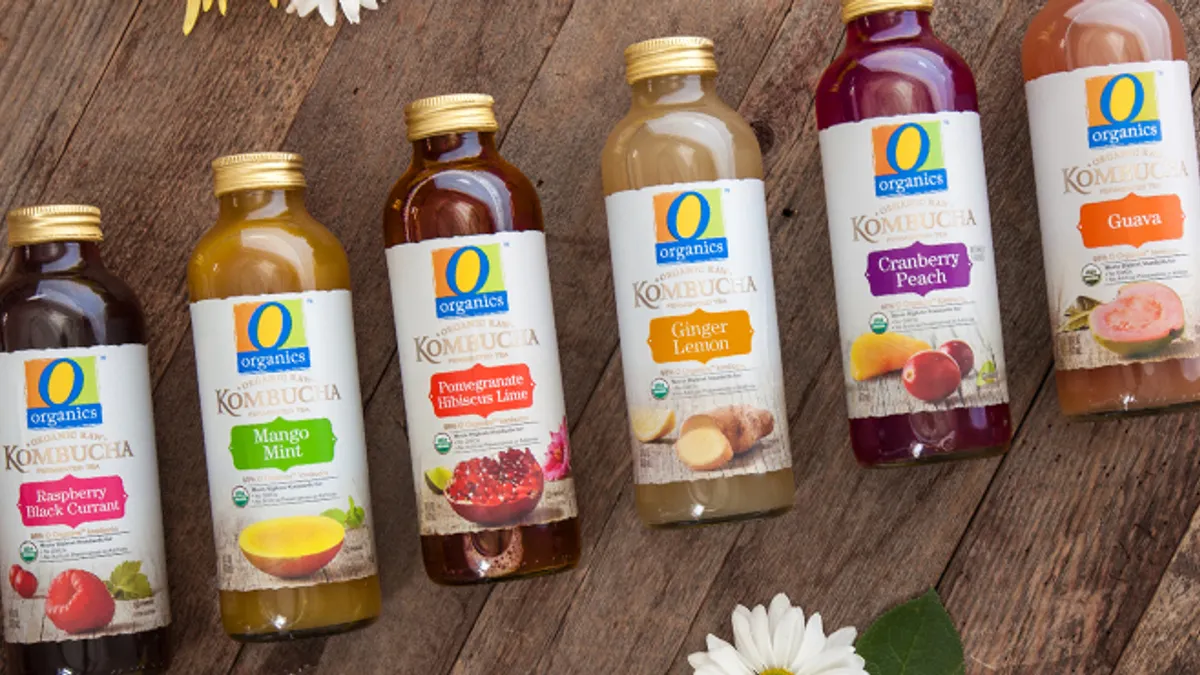Dive Brief:
- Albertsons plans to introduce nearly 1,400 new store brand products across all categories this year. This would more than double its private brand launches from 2017, according to a company press release.
- The company's Own Brands portfolio includes Signature, Lucerne, O Organics, Open Nature, Waterfront Bistro, Value Corner, Primo Taglio and debi lilly design.
- In the release, Geoff White, president of Own Brands, said the company has “a lot in the pipeline” and is just getting started. In this year's first quarter, the company introduced nearly 300 products such as Open Nature’s Scandal-less ice cream, bison top sirloin steak and granola bars, O Organics spinach and butter lettuce, and Signature Select cold brew coffee.
Dive Insight:
Albertsons impending merger with Rite Aid no doubt fueled this expansion. The deal gives the grocer 2,500 additional stores in which to sell its private label products, including an expanding selection of general merchandise and health and beauty care products. Albertsons’ Open Nature private-label brand recently expanded into nonfood categories.
An increased private label assortment could help lift Rite Aid's retail sales, which have lagged in recent years. With Albertsons' e-commerce capabilities at its disposal, Rite Aid could even become an online shopping destination for food and other products.
This extension also reflects the strong and growing consumer demand for store brands. According to Nielsen, store brands were posting growth of more than three times the rate of branded products by the end of 2017. That momentum is not expected to slow anytime soon as grocers look to private brands not just for better margins, but as ways to differentiate from competitors and boost loyalty.
Natural and organic brands are particularly promising. Earlier this year, Albertsons O Organic label — one of the first organic store brands — hit the $1 billion milestone.
The latest rollout complements a slew of growth initiatives undertaken by Albertsons in recent months, signaling its intention to stay relevant in an industry that's become significantly more competitive with Amazon’s purchase of Whole Foods. Albertsons quickly scaled up its Instacart partnership, made key investments in its e-commerce platform and has begun a nationwide rollout of meal kits by Plated, which it purchased last fall.
Private label products currently account for one in every five items sold in U.S. supermarkets, and competition should continue to heat up. Aldi, whose assortment is more than 90% private label, continues to expand rapidly across the country, while more than a quarter of Kroger's dollar sales come through private label.
Store brands have become a battleground for retailers, and Albertsons has shown it plans to dig in and fight hard. But will it meet consumer demands for quality and effective merchandising? As with its many other investments recently, it's not Albertsons' commitment that's a question mark, but rather its execution.








